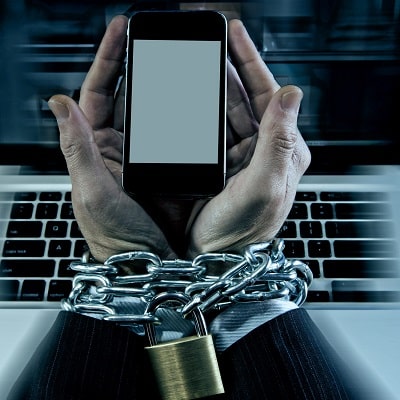How to combat social media addiction

The topic of user addiction to popular social media platforms is increasingly becoming a topic of discussion. In some countries, such as the UK, there are even separate initiatives at the national level. Media personalities such as Prince Harry, US Congresswoman Alexandria Ocasio-Cortez and others are also talking about the problem of addiction.
The harm of social platforms
Many users have become aware of their addiction to social networking platforms and are slowly withdrawing from them. By limiting their use of popular platforms, they note that they have not lost anything but gained something. For example, they talk about a reduction in feelings of anxiety. Social media force people to stay “on the agenda” all the time, to follow events and news, among which there is a lot of negativity.
Scientists do not yet recognise the term “addiction” in relation to social platforms. But the wording “problematic use” has already emerged in psychology. It refers to the increased attention to such networks, excessive use, all of which has a negative impact on a person’s psyche.
How to recognise addiction
A list of signs that indicate problematic, excessive use of social media.
- Displacement of ‘live’ communication. If a person is increasingly ‘hanging out’ on social networks and communicating in a virtual world instead of talking to others face to face, it’s a bad sign.
- The need to spend more time on social media indicates an unhealthy attitude is forming. If you feel the need to watch more and more networking, it’s worth thinking about the consequences.
- Emotional engagement, empathy for the virtual social life, counting the number of likes and similar activities indicate addictive behaviours.
- Negative emotions. It is not normal for a person to become annoyed when others distract them from their virtual networking activity.
- Deception. Addiction is indicated by the fact that a person hides information about how much time they actually spend on social media.
- Disruption. If the user is trying to spend less time on social platforms but is failing, it is time to take more decisive action.
The presence of at least half of these symptoms within six months may indicate a problem with social media.

Is there a solution to this situation?
Ask the question of how to reduce reliance on social media and the most common answer you will hear is to limit your use.
Nowadays, there are special programs for that – modern phones count how much time a person spends on such platforms, analyze the growth or decline of interest in the platforms. You need to pay attention to these indicators and make sure they don’t increase. Self-monitoring and timely restrictions help not to trigger the process.
Another way is to have a regular digital detox. Periodically spend time without social media and analyse what is happening to you at that moment, what emotions are arising.
However, many psychologists believe that the methods described above relieve the symptoms, but do not solve the problem itself. There is a reason why a person begins to form an addiction to social platforms. And in order to identify it, it is necessary to work with self-esteem, worldview, to form a healthier, positive attitude towards real life.
In such a situation, restricting use alone will not solve the problem, it is much more serious and profound. It is necessary to look for the “root of the evil”, to identify why people spend so much time in social networks. Behind such problems, according to the scientists who organised the study, are more serious emotional difficulties. In such cases, the question is not how to limit it, but why a person does not want to do it. And the first thing to look for is an answer to that.
Diagnosis or not
While the harmful effects of alcohol, drugs, smoking cigarettes become visible after a certain period of time, addiction to social media has no noticeable physical consequences. Despite this, it is necessary to clearly assess the damage it can cause to the emotional and psychological state of the user.
Psychologists are not in a hurry to support the initiative to recognize such addiction as a disease. In their opinion, it is a senseless idea, as the problem should be looked for in depth. Besides, there are no medicamental ways to cure such addiction. It is a psychological issue and needs to be addressed there.
